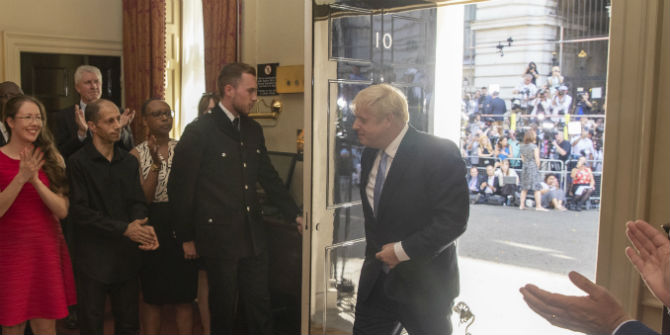
Wherever one stands on the question of Brexit, it undoubtedly presents opportunities, denied to Britain for almost half a century, to embrace its historic role as a global trading power. Britain can once again be the master of its own trading destiny, argues George Brandis QC (Australian High Commissioner).
A short distance from Australia House on the Strand, a commemorative plaque marks the location of the offices of the Anti-Corn Law League. The repeal of the Corn Laws was the great issue of 19th century politics. And, while it produced endless controversy in the Parliament and split the Tory Party, there are few today who would doubt that Britain made the right decision to throw off the chains of protectionism.
In fact, it is hard to think of a nation in history whose prosperity was more directly the product of free trade. For centuries, Britain was a land of merchant adventurers, for whom the oceans were highways of global commerce. Wherever one stands on the question of Brexit, it undoubtedly presents opportunities, denied to Britain for almost half a century, to once again embrace its historic role as a global trading power.
Australia, too, is a nation whose modern prosperity is the product of free trade. Trade between our two nations has diminished in the 45 years since Britain’s accession to the European Economic Community. Brexit gives Britain the opportunity to revive that trade – as it does with other like-minded nations in the Indo-Pacific region: the engine of the 21st-century global economy.

When the UK joined the EEC in 1973, it was Australia’s most significant trading partner. Thereafter, we found ourselves shut off from your market. At first, our response was to keep high tariff walls around ourselves, as protection from international competition. It was a manifest failure. We made poorer products at a higher cost than we should have. By 1980, Australia’s GDP per capita ranking had fallen to 19th in the world – from 7th in 1950 and 2nd in 1913.
By the mid-1980s, our policymakers realized their mistake, and we began to gear our industrial and trade policy to respond to international competition, not industry protection. Far from killing our national economy, the removal of protectionism renovated it: new industries emerged. Old, inefficient and uncompetitive industries fell away.
There were costs resulting from economic reform: some people lost their jobs or struggled to adjust to work in the new services industries that emerged. But we implemented strong social security safety nets, industry transition programs, and a commitment to education and training to help people find new careers. As demands on our labour force grew, policies facilitating immigration and the further participation of women rose to meet them. By 2017, even after the waning of the mining boom, we had once again resumed our position among the most prosperous nations. We are now in our 28th consecutive year of annual economic growth.
Our embrace of free trade is undoubtedly key to that economic success. Six years ago just 26 per cent of Australia’s trade enjoyed preferential access into export markets under negotiated FTAs. Today, that stands close to 70 per cent and is set to keep rising. The hungry middle classes of Asia provide us with markets for our agricultural exports that we will forever struggle to satisfy – which, incidentally, puts paid to the notion that British markets would be swamped with Antipodean beef and lamb under a bilateral trade deal.
The UK has once again arrived at a point in which trade will play a pivotal role in its destiny. It is not for Australia to encourage one outcome over another in the Brexit debate. We will stand by the UK regardless; our ambition to build on our already robust relationship (economic and otherwise) remains undiminished. Nevertheless, for those who look for precedent in these unprecedented times, the Australian experience – that the outside world is not a threat, but an opportunity – is surely instructive.
When confronted by change, it can be comforting to seek to shield oneself from the outside world. This was the sentiment Australia fell victim to in the 1970s, and what shaped the attitude of those who resisted repeal of the Corn Laws in the 19th century. They were wrong then, and they are wrong now.
For the first time in almost half a century, Britain can once again be the master of its own trading destiny. It is an exciting opportunity – but only if it is bold enough to seize the day.
This article gives the views of the author, and not the position of LSE Brexit, nor of the London School of Economics. An earlier version of this blog was published as an op-ed in The Daily Telegraph on 11 February 2019.
The Hon George Brandis QC is Australian High Commissioner to the United Kingdom. He has had a distinguished political career in Australia as a member of the Federal Parliament. His appointments have included Attorney-General, Vice-President of the Executive Council, Leader of the Government in the Senate, Federal Minister for the Arts, and Deputy Leader of the Government in the Senate.







There is not a single argument in this piece to explain why Brexit would enhance British global trade. It already has access to global markets via the EU trade deals. This is a piece about Australia.
The article singularly fails to stress gravity economics (though avers to such when referring to Australia / Asia trade). There is no argument for UK/Aus trade except tired jingoism.